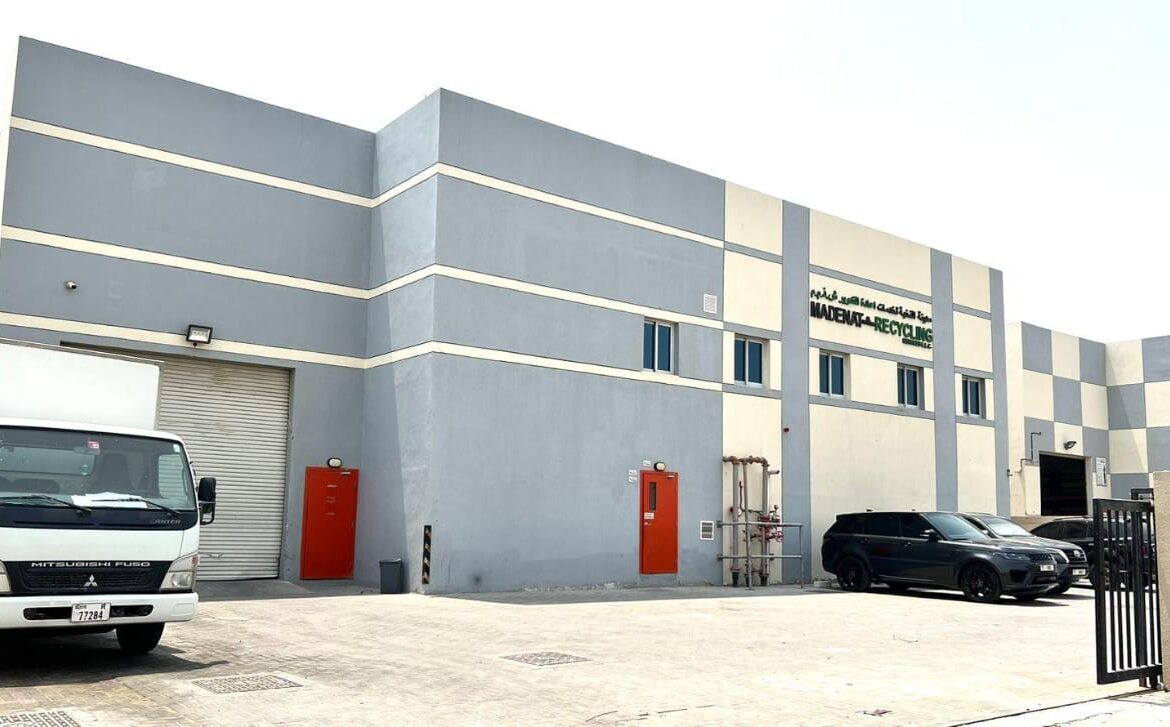In an era where sustainable practices and circular economies are gaining significant traction, the recycling industry is stepping up its game to address the growing e-waste challenge. A ground-breaking development has emerged in a Dubai-based recycling facility, Madenat Al Nokhba Recycling Services LLC. They have inaugurated a cutting-edge Lithium-Ion Battery Processing Unit, poised to transform the recycling landscape in the Gulf Cooperation Council (GCC). This innovative technology promises to not only efficiently recycle lithium-ion batteries but also extract valuable materials, reduce environmental impact, and contribute to the region’s sustainability goals.
The current green energy revolution is a global movement that aims at transitioning from fossil fuels to renewable energy sources in order to promote sustainability. Among the most popular green energy resource is the use of lithium batteries in various applications, such as electric vehicles (EVs) and renewable energy storage systems, which has been increasing significantly. While these batteries have revolutionized energy storage and transportation, they bring a significant challenge when it comes to recycling and disposal. The widespread adoption of lithium batteries also brings about concerns regarding resource depletion, environmental impact, and waste management. Traditional recycling methods are often inadequate to handle the complexity of lithium-ion batteries, which contain hazardous materials and valuable resources that need to be carefully managed.
Madenat’s Lithium-Ion Battery Processing Unit
The Lithium-Ion Battery Processing Unit at Madenat’s recycling facility in Dubai is a state-of-the-art solution designed to address the specific challenges posed by discarded batteries, particularly lithium-ion batteries. These batteries, while essential for powering our devices and renewable energy systems, also contain valuable materials like lithium, cobalt, and nickel, which are crucial for the production of new batteries. Madenat’s new facility employs cutting-edge processes to ensure the safe and efficient recycling of batteries
The processing unit comes with advanced robotics and automation to safely disassemble lithium-ion batteries, ensuring minimal risk to human workers and maximum material recovery. One of the standout features of this unit is its ability to recover a wide range of valuable materials. Batteries contain valuable and limited resources, such as metals (e.g., lithium, cobalt, nickel) and rare earth elements. Recycling batteries allow these resources to be recovered and reused in the manufacturing of new batteries or other products, reducing the need for new resource extraction and the associated environmental impact.
Madenat’s Dubai-based recycling facility has always been future-ready with different recycling plants to recycle all kinds of Waste Electrical & Electronic Equipment (WEEE). They recycle e-waste, batteries, spent lamps, and cables along with aerosol cans, hazardous waste, and special waste. There is a standard recycling process for any recyclable that arrives at the facility. The WEEE received in the facility is first weighed, sorted, and separated into various waste categories (for example, hazardous and non-hazardous) and everything is recorded and documented. Larger items (like white goods) are dismantled manually into various material components and then recycled per material component using advanced automated E-waste machines. Items that fall under the category of hazardous waste like used lighting systems – fluorescent tube lights/bulbs/lamps, once received at Madenat’s facility, are loaded to the lamps processing plant which operates an advanced automated system that doesn’t only crush the glass but also separates the phosphorus powder from the glass. This further goes through a distillation process to produce refined mercury. Which is then used for manufacturing medical devices, such as thermometers.
The addition of the Lithium-Ion Battery Processing Unit supports Madenat’s commitment to zero landfill and sustainable development. It showcases their dedication to adopting innovative solutions to address pressing global challenges.
The GCC region’s rapid growth has led to a heavy reliance on imported materials, including those required for battery production. Embracing lithium battery recycling contributes to the concept of a circular economy, where products and materials are reused, repaired, or recycled to minimize waste. Constant innovations in the recycling industry encourage a closed-loop system for lithium batteries in the GCC region including UAE, reducing the need for raw materials extraction and decreasing the environmental impact associated with battery production. With Madenat’s Lithium-Ion Battery Processing Unit, the GCC can establish a degree of resource independence.
By effectively recycling lithium-ion batteries and reintegrating recovered materials into new products, the processing unit helps reduce the carbon footprint associated with mining and refining raw materials.
Commenting on it, Joseph Nforbin, Managing Director, Madenat Al Nokhba Recycling Services LLC said, “Embracing innovation and sustainability, our latest battery recycling unit is a testament to our unwavering commitment to a greener future. Turning yesterday’s power sources into tomorrow’s possibilities, we’re not just recycling batteries; we’re recharging hope for a cleaner world.”.” He also added “Our battery recycling unit is located in our Dubai-based recycling facility, which is In the heart of the GCC. With the region’s rapid growth and technological advancement, the need for sustainable solutions has never been more critical. Together, we’re writing a new chapter in conservation, ensuring that progress is powered by a circular economy that leaves no trace behind.”
The introduction of the Lithium-Ion Battery Processing Unit marks a pivotal moment in the GCC’s recycling journey, positioning the region as a leader in sustainable practices and technological innovation. By efficiently recycling lithium-ion batteries and extracting valuable materials, this cutting-edge technology promises to reduce waste, conserve resources, and contribute to a more circular and sustainable economy. As Madenat Recycling continues to invest in forward-thinking solutions, it paves the way for a greener and more environmentally conscious future.
For more details visit www.madenatrecycling.ae or call at +971 43271778.

